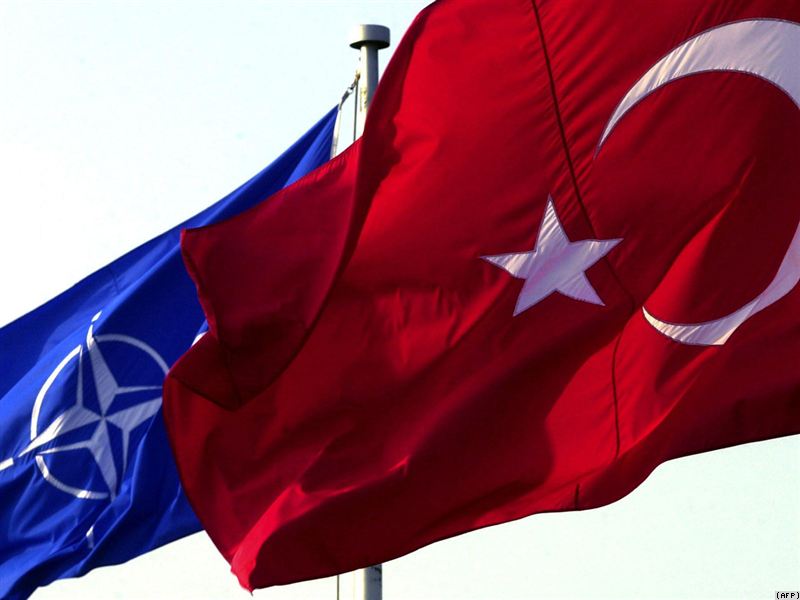
From Süreyya Yiğit, Eurasia Review: In fact the past six decades have been quite eventful witnessing both strong cooperation as well as deep disagreement between Turkey and fellow NATO members. During this time Turkey, NATO and the whole world has changed, and changed quite drastically. It is very difficult to compare the Turkey of 1952 with that of 2012. Equally, the NATO of 1952 is not the NATO of 2012. Then it had enlarged from 12 to 14 and today it has doubled from that, standing at 28.
Today, the Turkish Republic is an aspiring regional power with a buoyant economy, developing democracy, tried and tested effective military with a population of over 70 million. Sixty years ago, Turkey having avoided military confrontation in the Second World War was only just beginning to benefit from both the Truman Doctrine of 1947 and Marshall Aid, the population standing around 24 million. The economy was hugely dominated by agriculture with poor infrastructure and even worse transportation links. The menacing Soviet diplomatic notes of 1945-46 had driven Turkey into the Western bloc illustrated by her membership of the Council of Europe the year NATO was established. The heavy burden of military costs had taken its toll during the war years and the economy had not been able to diversify by the time of NATO accession, nor in truth was it able to stand on its own two feet.
Within the political and military elite, few had good command of another foreign language which proved to be a major hurdle at times during the Korean War, within which the Turkish Brigade served with distinction. In actual fact much has been attributed to the bravery of the Turkish soldiers easing the path of NATO accession for Turkey. It is certainly true that the casualties incurred by the Turkish brigade were very high and the determination of the Turkish government to defend democracy in the Korean peninsula was second to no other country than the USA, as they were the second country to send military forces to the UN, after the USA. . . .
All NATO members have since endured a long process of social and political reform which has enabled all to become better models of democracy manifesting the core values of a democratic society where the rule of law is supreme, human rights sacrosanct, toleration a virtue and freedom of speech and choice elevated to the realm of precept. None of the members are perfect models of democracy and some members have further to travel on the road towards the ideal progressive democracy, but the NATO ideal of democracies banding together to oppose communism has succeeded. The collapse of the Berlin Wall and the disestablishment of the Soviet Union robbed NATO of a threat and provided the members a cause to celebrate the fact that the democratic model had triumphed over the autocratic. . . .
As one looks at this fairly old and substantial relationship it is noticeable that the integrated military command has proven once again to be a success in the Balkans and greater Central Asia as well as the Middle East and the Mediterranean. Turkish participation was certainly not the decisive element which ensured the success of these missions but they did attest to the fact that NATO members were looking from the same direction when viewing these crises. As the NATO Secretary General admitted that “Turkey does more than just share our security: you shape it. Your experience and your expertise in the Middle East and North Africa are invaluable. They benefit the whole of NATO”.
Certainly there were opposing viewpoints domestically within Turkey as in all the other member states concerning these stances, as there ought to be in vibrant democracies. In the end democratic decisions were taken and steadfastly implemented and aims achieved. This could only be accomplished through a unified stance spearheaded by NATO. Concerning the importance to Central Asia and its environs, a good indication of the vitality of Turkey was evidenced by Rasmussen when sharing his thoughts about the upcoming NATO summit to be held in Chicago in three months time, when he mentioned that “We will have to set out how we will help the Afghan forces take responsibility for security in their own country – and how we will support them once they have done so”.
Therefore, sixty years after entering the Alliance, Turkey possesses and provides a greater role in the enhancement of security within the North Atlantic area and more importantly has transformed itself parallel to NATO into a community of values, sharing and cherishing core values. The relationship has been an enduring one due to one vital factor: mutual values and mutual benefit. Turkey without NATO would have been prone to greater pressure becoming more fragile and NATO without Turkey would have been weaker, missing an essential piece of the jigsaw that provided security for the North Atlantic area. As much as this was true in the past, it is even clearer to see this fact in today’s precarious international environment. The Secretary General summed this up quite succinctly when he stated that “NATO is a family of like-minded countries, a family where we make each other stronger, and Turkey is a valued member of the family”. It is highly likely that this family will continue to be a closely knit one for years if not for decades to come.
Süreyya Yiğit, Contributor, ORSAM Eurasia Advisor. (photo: AFP)
Image: afp%202%2021%2012%20turkey-nato_0.jpg
